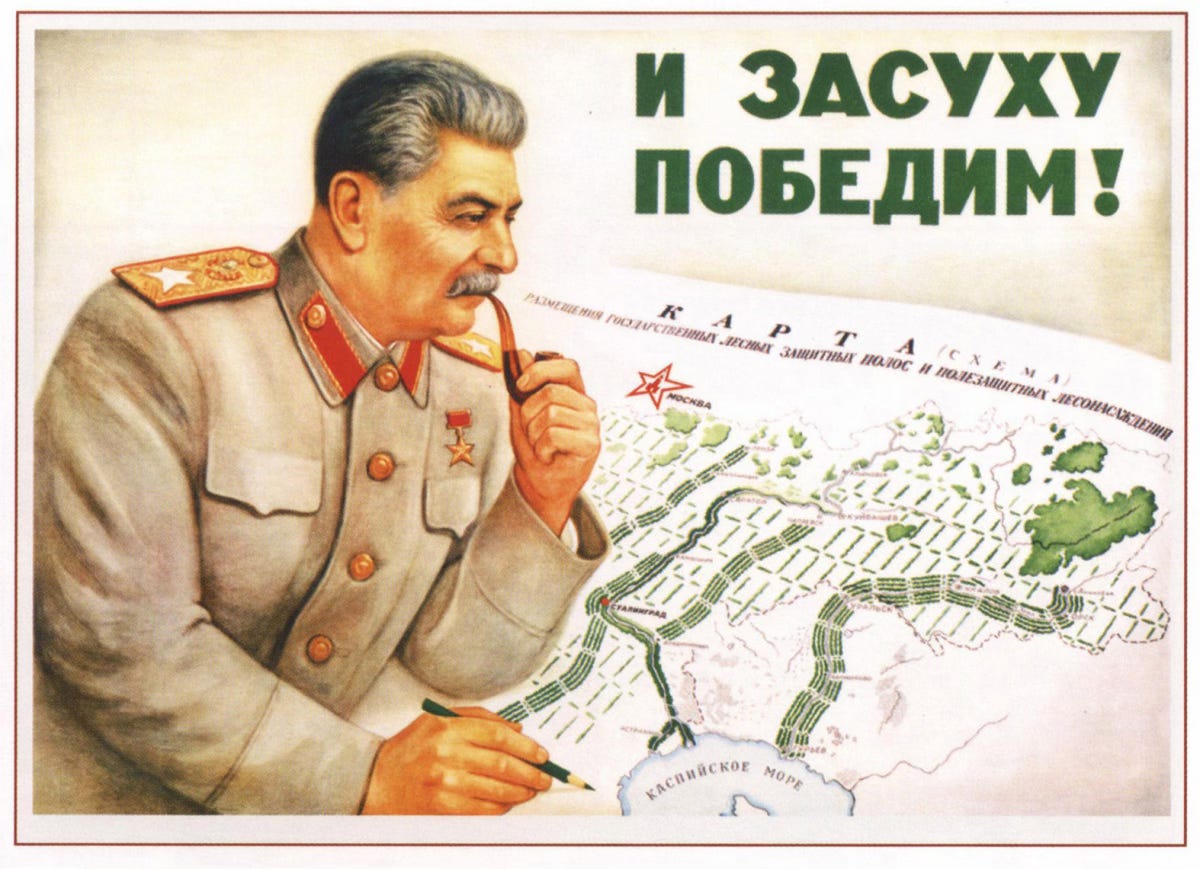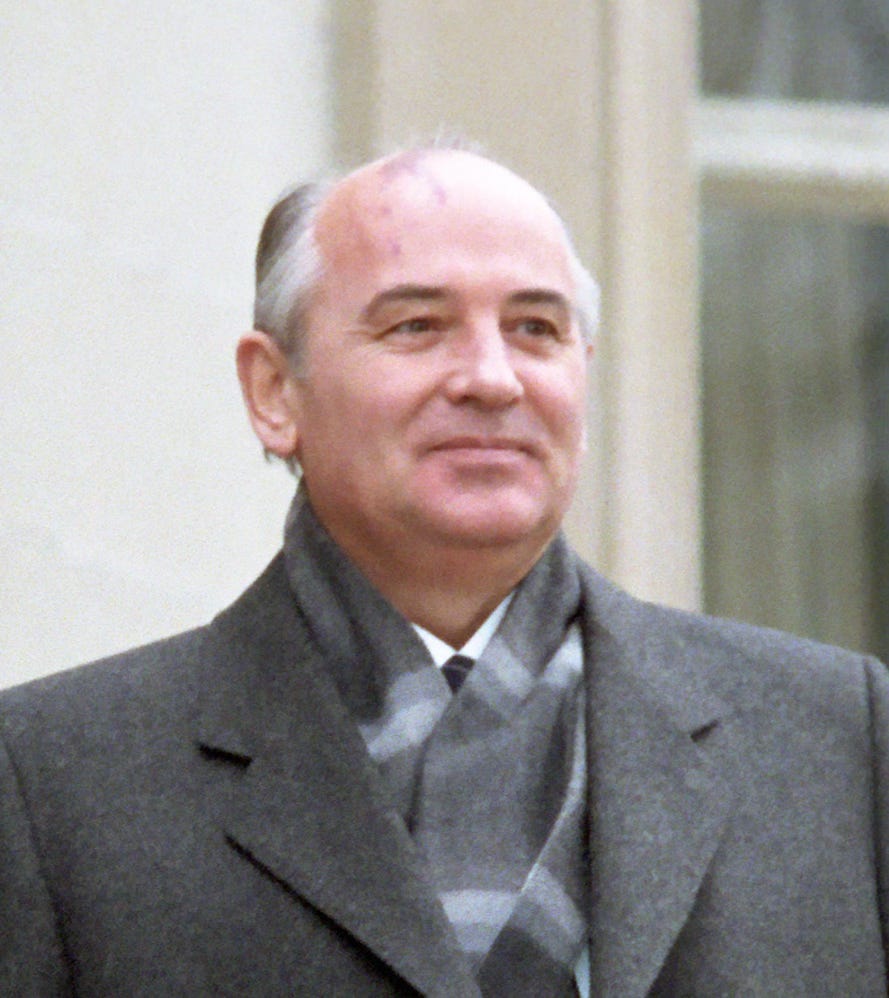The USSR after WWII
Review of A Failed Empire: The Soviet Union in the Cold War by Vladislav Zubok
Zubok begins with Stalin and a triumphant Soviet Union at the end of World War II. Though physically devastated and with the loss of approximately 27 million lives, only the USA enjoyed superior military and industrial power. Hermetically isolated and under brutal totalitarian dictatorship, the Marxist-Leninist ideology was very much alive and could serve to motivate citizens to work and re-build.
A shrewd negotiator, Stalin pursued what Zubok calls revolutionary imperialism: he would take any territory he could while installing a communist system via direct control (military occupation) and the installation of a security apparatus friendly to Marxism-Leninism. Anyone on the inside of the empire who stood in his way was annihilated or disappeared into the massive concentration camp system that Solzhenitsyn described in Gulag Archipelago.
In Stalin’s mind, war with the west was judged inevitable and communism was sure to triumph over capitalism. While cautious, Stalin continually probed the western democracies for weaknesses. With his attempt to take over the Iranian oil fields in 1946, he went too far and the Cold War began when Truman offered resistance to his encroachments. This marked the start of “containment”, particularly with the advent of the Korean War.
Stalin's successors, the “collective leadership” under Nikita Khrushchev, continued to subscribe to revolutionary imperialism. Under his leadership, the USSR continued to acquire military-industrial power, attaining thermonuclear capabilities as well as an apparent scientific ascendance in space technologies, e.g. sputnik and missiles. In a controversial move, Khrushchev denounced Stalin in 1956 – he was no longer seen as an infallible god, which was the beginning of the end of hard-core totalitarianism based on Marxist-Leninist ideology.
During the 1950s, the communist and capitalist systems appeared as viable competitors and extended their competition into the “periphery”, from Vietnam and China to Cuba and the Congo. In terms of style, Khrushchev was blustery and erratic, indulging in extremely dangerous nuclear brinkmanship that culminated in the Cuban missile crisis in 1962. Soon thereafter, Khrushchev was ousted.
According to Zubok, the new leadership, headed by Leonid Brezhnev, began to seek a different path, Detente, in which peaceful co-existence was the working assumption. It was based on good relations and negotiations at the top. While this did not mean the abandonment of revolutionary imperialism, it did point the way to non-intervention in each others' internal affairs and, most importantly, did not assume that war was inevitable. Nonetheless, in order to negotiate from a position of strength, the Soviet leadership believed that it had to attempt to achieve military parity with the US and so made massive investments in missiles and heavy arms; the cost of the maintenance of the Empire rose to 40% of the Soviet GDP.
This initiated a period of economic stagnation in the USSR. Indeed, the failure of the system to keep up with the dynamism of the western capitalist democracies became blatantly evident. Cultural opposition blossomed in the dissident movements as well as attempts at “softer” socialism like that of Dubcek in Czechoslovakia. As the Soviet regime attempted to crush these movements by force, belief in the Marxist-Leninist ideology had all but died, leaving behind a cynical and self-interested bureaucracy that continued under its own momentum, apparently without the ability to change or transform itself.
Detente also died, first with Nixon's resignation and Brezhnev's long decline into poor health and opiate addiction (a revelation to me), then in the war in Afghanistan and the placements of SS-20 missiles in Central Europe. As Ronald Reagan took over in 1980, perhaps the most conservative US President to hold the office in the post-World War II era, it appeared that a new competition between the superpowers was beginning.
The final leader, Mikhail Gorbachev (who represented a younger generation taking over from the gerontocracy), proved unable to better the situation. In his most original argument, Zubok argues that Gorbachev's personal faults – naive optimism, chronic indecisiveness, a vaguely conceived vision, and a categorical refusal to employ violence of any kind – were what caused the USSR to collapse so precipitously rather than evolving into a mixed economy as China has done.
According to Zubok, unable to adopt or even imagine pragmatic and practical measures to safeguard the state, Gorbachev sunk the Empire. First, his Perestroika (new thinking, along with Glasnost, or “opening”) sought to: 1) loosen the bureaucratic constraints on the economy, fomenting chaos; 2) encourage ideas to come in from elsewhere, heightening discontent; and 3) free the people to express themselves, in effect admitting to the faults inherent in the system and thus sparking a torrent of rage. All of this was somehow supposed to gradually enable a freer market to function, while the USSR could seek to join Western Europe in a kind of convergence of systems.
Unfortunately for the Soviet government, the police state could no longer function: Gorbachev’s policies led instead to a dismemberment of the Empire, first in Eastern Europe (1990), then in the peripheral Soviet Republics, and finally in the heart of Russia itself with Gorbachev being ousted in a comically inept coup in 1991. Yeltsin emerged as the new leader and communism was abandoned for good.
The book ends with only a few references to Putin and other aspects of the aftermath. While I think the collapse was inevitable – the Soviet Empire was impossible to sustain financially – I take Zubok’s point on Gorbachev's many leadership failures. This book offers a solid analysis, if occasionally reads as a bit of a slog. The concluding chapters on Gorbachev are worth the price of admission. It is clearly written, often quite profound, and never stuffily academic. This is a diplomatic history, with less emphasis on economics, personalities, or political considerations.
If you want an update on the makings of Soviet diplomacy from newly available sources in Russian, this is your book. It offers not a dry survey, but an original and hard-hitting interpretation that is not over-burdened by ideology. For the most part, it is engaging, both as an introduction and a clarifying source for specialists. It is an analytic history with little narrative – Zubok concentrates on the ideas and actors, with many details going uncovered. Also, domestic considerations – the economy, political machinations, and human rights – are included only as relevant to Soviet diplomacy and power. Finally, a certain level of knowledge is assumed. The level is high undergraduate.




